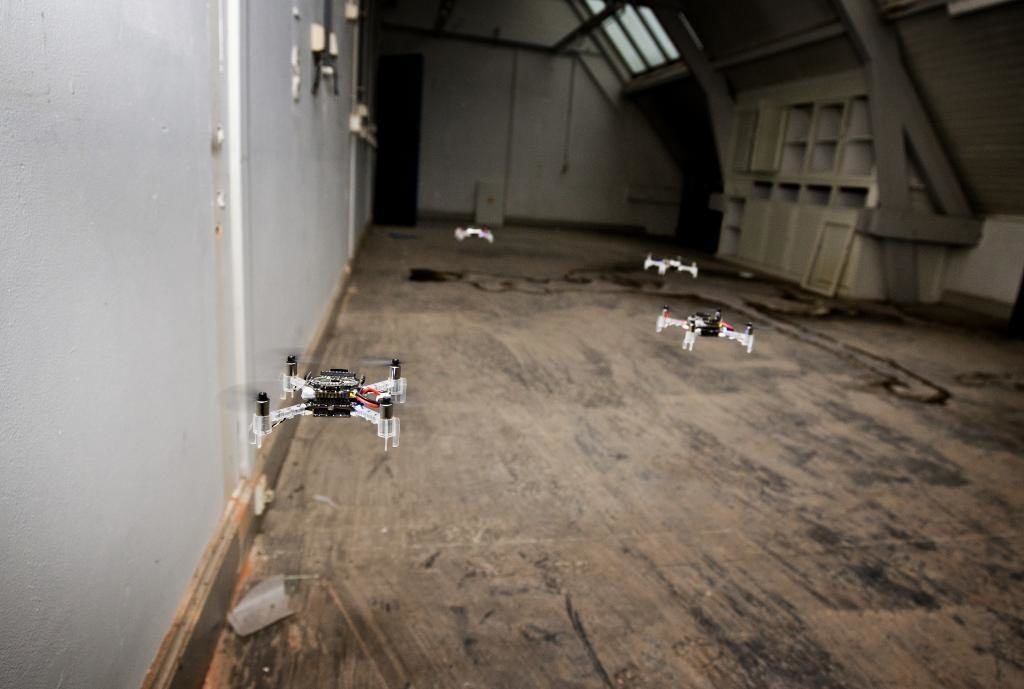We have succeeded in making a swarm of tiny drones that can autonomously explore unknown environments. This achievement, published in Science Robotics on October 23, is a result of a 4-year collaboration with researchers from the University of Liverpool and Radboud University of Nijmegen.

The main challenge was that the tiny 33-gram drones need to navigate autonomously with extremely limited sensing and computational capabilities. The proposed solution draws inspiration from the relative simplicity of insect navigation. Instead of building highly detailed 3D maps such as most autonomous robots, our drones use a novel “bug algorithm” for navigation. This algorithm makes the drones react to obstacles on-the-fly. It allows the drones to first fly away from the base station to explore the environment, and, when batteries start running low, to come back to a wireless beacon at the same location.
The article that now appeared in Science Robotics is the culmination of our efforts to bring swarms of tiny drones to the real world. In order to reach successful swarm exploration, we needed to tackle “low-level” problems such as how drones can localize other drones, how they can estimate their own velocity and detect and avoid obstacles. Only when these capabilities were available, could we focus on having the drones coordinate the exploration and navigate back to the base station.
For more more information, see the extensive press release on the TU Delft website
Link: https://www.tudelft.nl/en/2019/tu-delft/swarm-of-tiny-drones-explores-unknown-environments/
More information
Article information
Minimal navigation solution for a swarm of tiny flying robots to explore an unknown environment
K.N. McGuire, C. De Wagter, K. Tuyls, H.J. Kappen, and G.C.H.E. de Croon
Science Robotics, 23 October 2019
DOI: 10.1126/scirobotics.aaw9710
Link: http://robotics.sciencemag.org/lookup/doi/10.1126/scirobotics.aaw9710
Contact information
Primary contact: Guido de Croon, phone: +31 648255416 (English, French, Dutch), email: g.c.h.e.decroon@tudelft.nl
Secondary contact: Ilona van den Brink, phone: +31 681833671 (English, Dutch), email: i.vandenbrink@tudelft.nl
Tertiary contact number: +31 152789111
The research team
Kimberly McGuire, Christophe De Wagter, and Guido de Croon (TU Delft)
Karl Tuyls (University of Liverpool)
Bert Kappen (Radboud University Nijmegen)
Financed by the Dutch Research Council (NWO), within the Natural Artificial Intelligence programme.
Videos
YouTube playlist:
https://www.youtube.com/playlist?list=PL_KSX9GOn2P9okvQGaGMP7KdXmF-7_iSV
Additional videos:
https://surfdrive.surf.nl/files/index.php/s/gt1kdiOZI8VeaRj
